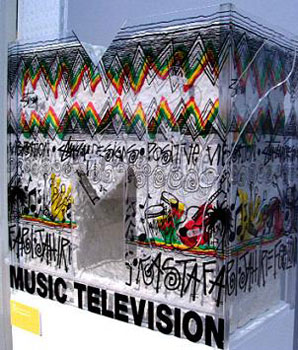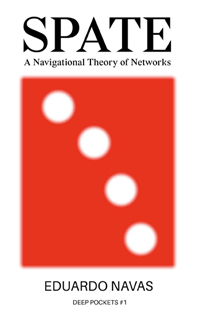Do they still want their MTV? A changing format, by David Carr

Image source: http://www.hypebeast.com/
Text source: International Herald Tribune
February 19, 2007
NEW YORK: MTV prospered for decades because it looked like what a network might look like if a 16- year-old were doing the programming.
But now the music channel is trying to make its way in a multidevice, multiplatform, multichannel world, most of which is being programmed by a 16- year-old.
The velocity of change has left MTV occasionally looking as if were being programmed by an 83-year-old — namely Sumner Redstone, the chairman of Viacom, which owns MTV. The network, itself a stately 25 years old, has suffered a decline in ratings and cultural cachet.
Last week, MTV Networks, an umbrella that includes MTV, VH1, Comedy Central and Nickelodeon, laid off 250 employees, including some executives.
The idea was to trim bodies in the television ranks and increase hiring on the Internet side of the business, investing the savings to make sure that its various channels do not end up like the dad in the basement at the teen party.
As a brand, MTV has been beyond durable, managing to reinvent itself continuously and in doing so presenting a fast-moving target that left many would-be rivals in its wake.
Shows like MTV’s “Real World” deserve much of the credit, or blame, for demonstrating that reality can make for compelling viewing.
But finding the edge was simpler before competition for its core demographic started coming from all fronts, from video games and social-networking Web sites to amateur clips on YouTube. And consumers can use the Web to come up with their own reality narratives — the current transformation of Britney Spears from pop superstar to bald alien is pretty tough for anyone to compete with.
Being the coolest thing on television is a feat, but not one with a lot of future when most of the coolest things no longer live there.
MTV has been madly programming screens of all sizes and looking to engage consumers on whatever device they choose, but it has been slow going. Rising above the clutter was a lot easier when we were all staring into the same campfire.
“It’s true that our viewers are telling us that they want an experience beyond linear television,” said Christina Norman, MTV’s president. “MTV has a history of surrounding the consumer with both long-form and interstitial content, and I think we can deliver on a two-way relationship with our audience.”
She suggested that there were few media brands better-suited to coming up with content for cellphones and added that the virtual communities around shows like “Laguna Beach” have created opportunities for both viewers and advertisers.
The so-called music channel left music behind as a sole platform some time ago, instead relying on reality and lifestyle shows to draw in young audiences. But it nonetheless remains in the business of zeitgeist.
In a sense, the change in the musical ecosystem reflects broader challenges. Not that long ago, a band fought its way to a major label contract, benefited from commercial radio play and then, finally, a video on MTV. But this system has been disrupted by entertainment’s new iterations, and now most bands no longer ride a vertical axis to the top.
There are various workarounds to the popular music monolith — online file-sharing, viral marketing, niche sites and social networks help bands market their music from one person to another.
It is all well and good that OK Go, the band-as-music-video-sensation, chose to premiere its video “Do What You Want” on “Total Request Live,” MTV’s once-dominant afternoon show, but it is worth remembering that OK Go emerged to begin with from YouTube, where its goofy treadmill video became a cult classic.
In a sense, MTV, which once decided what was worthy, is responding to a more powerful consumer algorithm.
The disintegration of mass has made for difficult times at MTV Networks, although there are bright spots. VH1 continues to hum with a heady mix of “celeb reality” like “Flavor of Love” and shows like “Best Week Ever” that annotate the present with the ease of a well-written blog. VH1 does not bear MTV’s burden of serving as a generational touchstone, so it can program whatever happens to be working.
The organizational changes at the network signal that even MTV can learn some best practices from other members of the corporate family.
Marketers I spoke to said that it was the once-dowdy VH1 that seemed to have the fresher ideas. And Comedy Central, which lacks both the legacy and the baggage that MTV carries, is very much of the moment, led by a skeptic in chief, Jon Stewart.
Lascia un commento
You must be logged in to post a comment.








